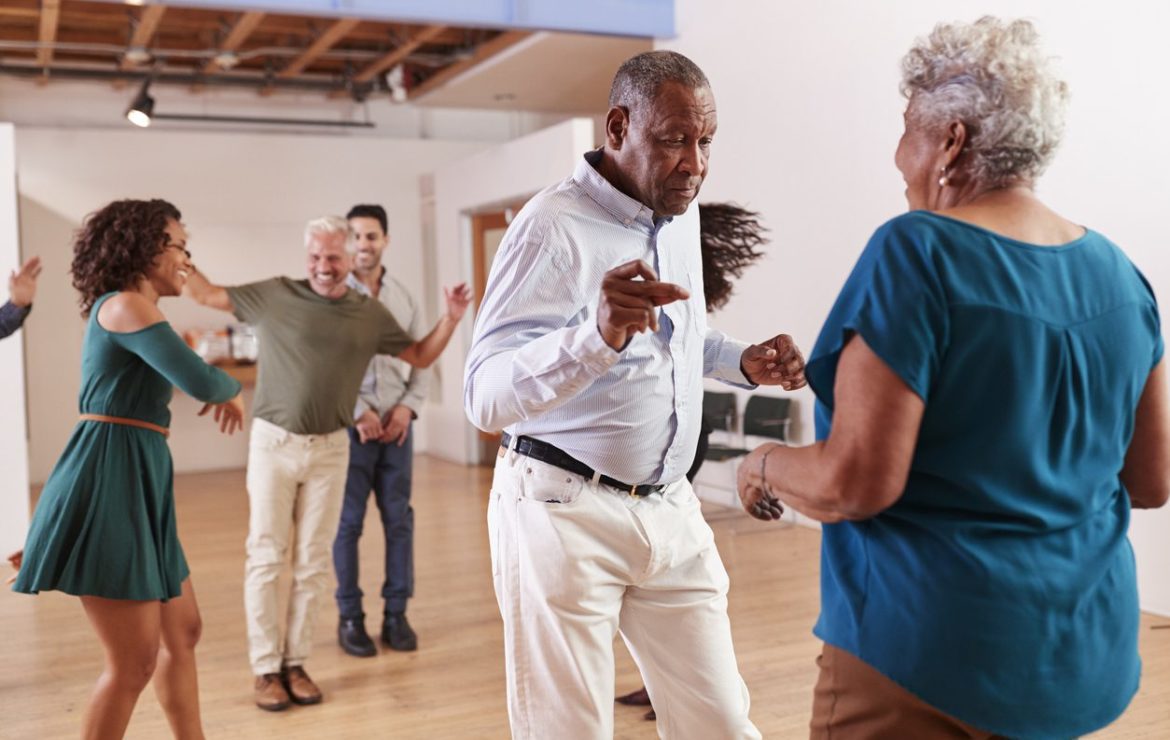Activities For The Elderly With Dementia

Dementia is a terrible condition that affects numerous people. Unfortunately, it is a progressive condition that will worsen over time. However, while there is no cure yet, it is possible to slow its progression (although this may not be possible for all patients).
In this blog, Four Oaks shares the best exercises and activities you can do when caring for a senior with dementia. Helping them engage in satisfying and failure-free activities can have many positive benefits for dementia patients, so this blog explores sensory stimulation, physical activity, and self-expression activities that will you can do with a family member or your dementia patients.
Read further to learn about physical and meaningful activities that you can do today with people with dementia.
Exercises for Dementia Patients
We all know that exercise is good for your physical health and general well-being. Studies have found that regular exercise is actually the best way to reduce the risk of developing dementia.
However, those who have dementia already can still benefit from exercise. Research shows that doing regular aerobic exercise can improve your memory and reduce the progression of dementia.
When giving care to dementia patients, the exercise you choose to do with them will vary based on their age and physical condition. Keep this in mind when considering the physical activities listed below.
Walking
Walking is a gentle exercise to start off with. Whether you make a loop around the house or garden or take a stroll around the neighbourhood, it’ll help to get their body moving.
Easy strength exercises
Strengthening exercises such as sit-to-stand, balancing in a standing position or sitting unsupported for a couple of minutes a day are all simple things you can do to help a dementia patient strengthen their muscles.
Tai Chi
Tai Chi is a more moderate form of exercise, yet it’s still slow enough for elderly individuals to do. It provides several benefits, such as strengthening muscles, increasing endurance and enhancing flexibility. Stimulating activities such as Tai Chri also have many brain-related benefits for dementia patients, such as improving cognitive function.
Gardening
Gardening is another great activity for seniors with dementia. Not only does it help work up a slight sweat, but gardening also improves hand-eye coordination. It also increases your body’s serotonin levels and helps dementia patients feel like they’ve achieved something. In addition, outdoor activities have the benefit of the sun, birds and smells on the breeze.
Dancing
For a more advanced and intensive exercise, seniors with dementia can try out a dancing class. It’s best to lead the dances here so they don’t have to worry about remembering a routine. And, by putting on their favourite music, it’ll seem like more of a fun activity than an exercise routine.
Senior-Friendly Sensory Activities for Dementia Patients
When planning activities for dementia patients who are elderly, you should ideally aim to help them achieve one of the following:
- Remember their life
- Expressing themselves
- Make them feel more engaged with life
- Create emotional connections with others
- Make them feel productive
Getting dementia patients involved in engaging and creative activities and games like the ones below will provide them with mental stimulation, positive feelings and a host of other benefits, such as reduced levels of depression or anxiety.
Crossword puzzles
For individuals with early to mid-stage dementia, crossword puzzles are an engaging activity that can help with their problem-solving abilities. Additionally, doing crossword puzzles will reduce their stress levels, and every time they complete a puzzle, they’ll get an added confidence boost, which is great for self-esteem.
Bingo
Not only is this a fun game to play, but it can also be easily adapted for seniors with dementia. Playing this game will help stimulate their memory and thought process.
Make a memory box
While dementia patients struggle with their short-term memory, their long-term memory tends to be quite sound. Therefore, having seniors bring together items from their early days will help them to reminisce. A memory box is a wonderful way to store happy memories and old photos which they may like to share with you or with family members at another point.
Build a puzzle
For seniors with dementia, building jigsaw puzzles is a great way to stimulate their brains while also providing a great opportunity for them to socialise and connect with other elderly individuals or caregivers. Building a puzzle is one of the sensory activities that, as dementia progresses, can still be engaged with regularly.
Read a book
Those in the early stages of dementia will still have active minds and a high level of cognitive functioning and be able to read books independently. If you’re caring for an elderly person who can’t do this alone anymore, reading to them can be just as enjoyable.
To help them stay engaged, spend time reading to them in the fresh air. Combining reading with a sensory experience is a great activity as their attention span may not be very long.
Get crafty
Allowing seniors with dementia to unleash their creativity is a relaxing yet stimulating activity. For those with a high level of dexterity, painting and drawing are great options as they can enter a zone of calm while working the creative side of their brain.
However, for those with limited dexterity, you could cut out pictures from magazines or colourful shapes and have them arrange the images in a colourful collage. As long as you have crafts, arts and fun involved, your seniors will be happy.
Conclusion on Activity Ideas for People With Dementia
For dementia patients, exercises and activities should provide sensory stimulation and memory care while supporting cognitive function. Even everyday tasks should focus on these.
In our care homes, everyday activities and planned activities both promote mental and tactile stimulation so that the later stages of our patients’ lives are as healthy and interesting as possible. If you’d like to know more about our care homes or the care services we offer, get in touch with us today.




